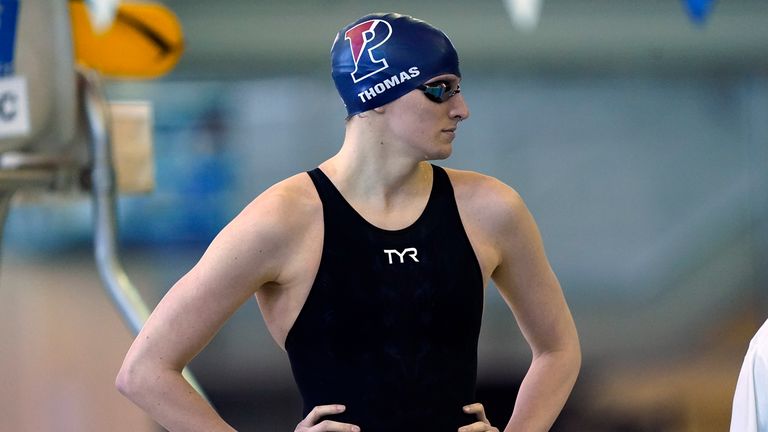Lia Thomas, the transgender swimmer who made headlines by becoming the first transgender athlete to win an NCAA college title in March 2022, has officially lost her legal battle against World Aquatics. This defeat dashes her hopes of participating in the upcoming Paris Olympics.
Thomas, 25, had been barred from competing in the female category due to new rules introduced by World Aquatics in the summer of 2022. These rules prohibit individuals who have undergone any part of male puberty from competing in the female category.
Thomas contested these rules, arguing they were “invalid and unlawful” and violated both the Olympic charter and the World Aquatics constitution.
However, the court of arbitration for sport delivered a 24-page decision concluding that Thomas was “simply not entitled to engage with eligibility to compete in WA competitions” because she was no longer a member of USA Swimming.
This ruling has been celebrated by World Aquatics, which views it as “a major step forward in our efforts to protect women’s sport.”
World Aquatics’ Stance on Fairness and Inclusivity
World Aquatics has maintained that its new rules are essential to ensure fairness in women’s sports. The organization is committed to creating an environment that promotes fairness, respect, and equal opportunities for athletes of all genders. They reaffirmed this commitment following the court’s decision.
The rules in question were introduced after Thomas beat Olympic silver medalist Emma Weyant by 1.75 seconds to win NCAA gold in the women’s 500-yard freestyle in 2022.
According to a scientific document that informed World Aquatics’ decision, athletes like Thomas retain significant physical advantages from undergoing male puberty, even after reducing their testosterone levels through medication.
These advantages include enhanced endurance, power, speed, strength, and lung capacity.
The Court’s Decision
While it was anticipated that World Aquatics might argue the scientific merits of their decision at the court of arbitration for sport, the hearing focused solely on whether Thomas, who is no longer a member of USA Swimming, had the right to challenge these rules.
According to The Guardian, the court ultimately ruled that Thomas had no standing to sue World Aquatics’ transgender policy.
A critical paragraph from the court’s ruling stated: “The panel concludes that since the Athlete is not entitled to participate in ‘Elite Event’ within the meaning of USA Swimming Policy, let alone to compete in a WA competition, which occurs upon registration with WA prior to a competition or upon setting a performance which leads to a request for registration as WA world record, she is simply not entitled to engage with eligibility to compete in WA competitions.
The policy and the operational requirements are simply not triggered by her current status.”
World Aquatics’ Open Category
Despite the strict rules, World Aquatics has emphasized its efforts to be inclusive. The organization introduced an “open” category for transgender swimmers. Unfortunately, plans to debut this category at the Berlin World Cup last October were canceled due to a lack of entries.
No participants registered for the 50m and 100m races across all strokes, which were to be held alongside male and female races.
Thomas’ legal battle and subsequent defeat highlight the ongoing debate around inclusivity and fairness in sports. While some view the ruling as a necessary measure to protect women’s sports, others see it as a setback for transgender athletes seeking to compete at the highest levels.
Read more news:
